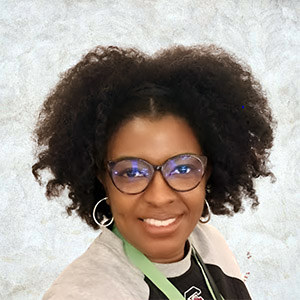History and Vision
Since 2017, the PDS Fellowship program has aimed to enhance PDS scholarly productivity, extend collaboration between USC and PDS partners, and support teacher leadership in using action research or improvement science to address relevant and pressing needs within school settings. A unique feature among peer institutions with PDS models, the fellowship has become increasingly competitive.
Commitments
Reinforcing the PDS Network’s existing partnerships, PDS fellowships encompass a multidirectional set of expectations:
- Each PDS Fellow must remain in good academic standing, center their dissertation on a problem of practice within the PDS site, and strive to present and/or publish their findings.
- The College of Education provides graduate tuition reduction credits toward the Ed.D. and a yearly stipend to offset additional expenses, along with dissertation support from the site-based liaison and the fellows liaison.
- The PDS Site agrees to accommodate the fellow’s job-embedded dissertation research and encourage dissemination of findings.
Applications
The deadlines for applications are March 1 and November 15, as long as funds are available. In addition to a one-page description of their research interest, applicants are expected to upload two letters of support on institutional letterhead from their PDS administrator and site-based PDS liaison. Prior to submitting the application, applicants should meet with these individuals to discuss the fellowship and how their research interest aligns with the PDS goals of the partnership site.
Note: You must enroll in one of the four concentrations (Curriculum Studies, Learning Design and Technologies, STEM Education, and Education Systems Improvement) for the Ed.D. in Educational Practice and Innovation prior to applying for a fellowship
Current Fellows
| Name | PDS | Concentration |
|---|---|---|
|
Mary Gaskins |
Lexington One |
Education Systems Improvement |
|
Brittany Holden |
Dutch Fork High |
Learning Design and Technologies |
|
Dale Jacobs |
Hopkins Middle |
STEM Education |
|
Atonce Joseph |
Lower Richland High |
Curriculum Studies |
|
Mansa Joseph |
Irmo Middle |
Education Systems Improvement |
|
Gabe McGee |
Fulmer Middle |
Learning Design and Technologies |
|
Katherine Mewborne |
Dutch Fork High |
Curriculum Studies |
|
Michelle Powell |
Dreher High |
Education Systems Improvement |
|
Bethany Sanders |
Dutch Fork High |
Curriculum Studies |
Former Fellow Dissertations
Cárdenas, J. B. (2024). Co-teaching as a transformative tool: Enhancing cultural competence, linguistic responsiveness, and pedagogical practices of veteran teachers [Doctoral dissertation, University of South Carolina]. Scholar Commons. https://scholarcommons.sc.edu/etd/8088
Biery, R. B. (2022). A holistic approach to culturally relevant education in biology to examine student engagement [Doctoral dissertation, University of South Carolina]. Scholar Commons. https://scholarcommons.sc.edu/etd/7069
Degar, K. S. (2023). Online professional development's effect on teachers' technology self-efficacy and continuance intention to use Pear Deck [Doctoral dissertation, University of South Carolina]. Scholar Commons. https://scholarcommons.sc.edu/etd/7272
Gaillard, N. D. (2018). The impact of number talks on third-grade students’ number sense development and mathematical proficiency [Doctoral dissertation, University of South Carolina]. Scholar Commons. https://scholarcommons.sc.edu/etd/4844
Harris, R. L. (2021). Student perceptions of culturally relevant pedagogy and the impact on teacher-student relationships [Doctoral dissertation, University of South Carolina]. Scholar Commons. https://scholarcommons.sc.edu/etd/6331
James, A. L. (2018). What are the effects of curriculum compacting on students’ ability to use higher order thinking? [Doctoral dissertation, University of South Carolina]. Scholar Commons. https://scholarcommons.sc.edu/etd/4924
Johnson, M. (2022). Peer observation and feedback as a professional development structure [Doctoral dissertation, University of South Carolina]. Scholar Commons. https://scholarcommons.sc.edu/etd/6947/
Jones, A. (2022). Evaluating the impact of reciprocal teaching embedded within a web 2.0 tool upon fifth-grade students’ reading comprehension during integrated readers’ workshop at a professional development school [Doctoral dissertation, University of South Carolina]. Scholar Commons. https://scholarcommons.sc.edu/etd/7093
Knotts, S. C. (2023). A qualitative study examining and comparing families' and teachers' perceptions of school readiness [Doctoral dissertation, University of South Carolina]. Scholar Commons. https://scholarcommons.sc.edu/etd/7483/
Meyers, B. C. (2021). Virtual interactive notebooking with gifted learners in an inquiry-based social studies classroom: A mixed-methods action research study on higher-order thinking and student motivation [Doctoral dissertation, University of South Carolina]. Scholar Commons. https://scholarcommons.sc.edu/etd/6341
Scott, C. B. (2021). Practitioner inquiry: Supporting teachers during a national pandemic [Doctoral dissertation, University of South Carolina]. Scholar Commons. https://scholarcommons.sc.edu/etd/6348
Simmons, C. B. (2023). Instructional hub: Bridging the gap in teacher preparation for online teaching during the COVID-19 pandemic [Doctoral dissertation, University of South Carolina]. https://scholarcommons.sc.edu/etd/7562/
Smalls, K. M. (2023). The impact of the flipped classroom model on elementary students' achievement and motivation for learning geometry [Doctoral dissertation, University of South Carolina]. Scholar Commons. https://scholarcommons.sc.edu/etd/7263/
Suber, S. M. (2021). Shattering the glass slipper: An investigation into nontraditional gender roles and norms in the elementary classroom [Doctoral dissertation, University of South Carolina]. Scholar Commons. https://scholarcommons.sc.edu/etd/6521
Valencia, R. (2025). Lessons in game use: Examining engagement and content Knowledge with the use of digital game-based learning lessons in biology [Doctoral dissertation, University of South Carolina].
